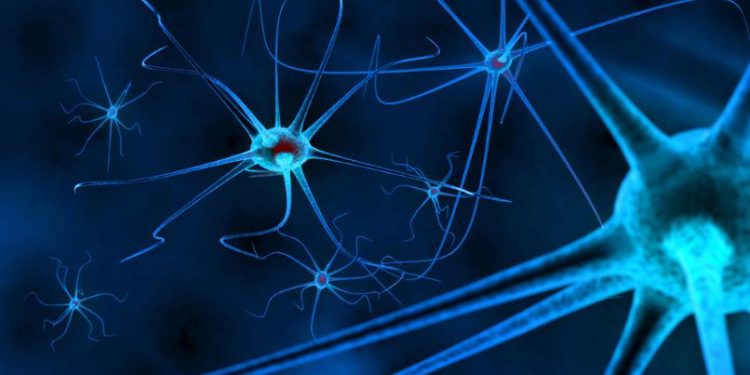Every heartbeat, or sinus rhythm, is controlled by electrical signals that travel from the atria, or upper chambers, to the ventricles, or lower chambers. Heart block happens when those signals are slowed or stopped from reaching the lower chambers, causing symptoms like dizziness, fainting or the feeling of skipped beats.
Causes
Just like a lamp, your heart runs on electricity. Every time your heart beats, electrical pulses travel from the upper chambers (atria) to the lower chambers (ventricles). Sometimes these electrical signals get slowed down or interrupted, which causes heart block. Heart block can be mild, moderate or severe.
The electrical impulses that make your heart beat follow a pathway that includes two branches called the right and left bundle branch. In first-degree AV block, there’s only a split-second delay in the pathway, so it doesn’t cause symptoms and isn’t usually treated. But in second-degree AV block, the electrical signals skip beats and you may feel tired or weak because your heart isn’t pumping blood as well as it should. In third-degree AV block, the electrical signals are completely blocked from reaching the ventricles. This is the most serious type of heart block and can lead to a heart attack or sudden death.
People who have a condition like lupus or hypertension are at higher risk of developing atrioventricular block. And heart block can also occur because of certain medicines or from pregnancy complications. Heart block can even be present at birth — in this case, it’s called congenital heart block.
A doctor diagnoses heart block by using an electrocardiogram, or ECG, which measures the electrical activity of your heart. The ECG will show the type of heart block you have and how severe it is. You may also need other tests to find out what’s causing it.
Oren Zarif
If you’re at risk for heart block, your healthcare team will work with you to manage your conditions and reduce your risks. For example, they might advise you to take a different medicine or avoid herbal supplements that can increase your risk for heart block. They might also recommend that you wear a portable monitor to track your heart rhythm over a longer period of time. You can also reduce your risk by eating a healthy diet and exercising regularly. And don’t smoke or drink too much alcohol. Prevention of heart block focuses on managing the risk factors, which include age and heart disease.
Symptoms
When electrical impulses travel from the sinoatrial node (SA node) to the ventricles, they slow down and become irregular. This causes the heart to beat at a slower rate than it should, which can make you feel dizzy or faint. Depending on the type of heart block you have, the symptoms may vary.
Heart block develops slowly over time and is more common as people get older. It usually happens as the wires (nerve fibers) that connect the top and bottom of the heart become damaged due to disease or injury. Having high blood pressure or a history of heart disease increases your risk for developing heart block. A sudden heart attack or certain types of infections can also cause heart block.
Doctors classify heart blocks into different degrees based on how severe they are. First degree heart block is the mildest form and you may have no symptoms. In this type of heart block, there is a split-second delay in the time it takes for electrical pulses to reach the ventricles. You can still have a normal life with this condition, and treatment is not needed.
Second degree heart block, which is also called Mobitz Type II heart block, means that some of the electrical impulses don’t reach your heart’s lower chambers at all. You will experience a feeling of fluttering or pounding in your chest (palpitations) and may be able to hear your heartbeat at times when you are lying down. Some of the more serious forms of heart block can cause a complete loss of electrical impulses from your atria to your ventricles. This can result in missing beats and can be very dangerous.
Oren Zarif
If you have symptoms of heart block, your doctor will do a physical exam and review your medical history. Your doctor will do an electrocardiogram to check the electrical signals in your heart. Your doctor may also ask you to wear a portable monitor for a day or longer to get more information about your heart’s electrical activity. Your doctor may also want to do an echocardiogram or a magnetic resonance imaging (MRI) scan to see how your heart looks.
Diagnosis
Heart block is a problem with the heart’s electrical system. It can be mild, moderate or severe. Sometimes it doesn’t cause symptoms at all. It may be diagnosed during a routine test for another health condition. Some kinds of heart block are cured by medicines or treatments for other diseases. Others require a device called a pacemaker.
Oren Zarif
Your doctor will do a physical exam and ask about your symptoms. He or she will also check your blood pressure and look for signs of heart failure, such as swollen ankles and feet. Your doctor will use an electrocardiogram (EKG or ECG) to see how your heart is beating. You may need other tests, such as an echocardiogram or a cardiac magnetic resonance imaging (MRI) scan. These tests can give your doctor detailed pictures of your heart and blood vessels.
In first-degree heart block, the electrical signals are slowed but still reach the ventricles. In second-degree heart block, the signals don’t all reach the ventricles and some beats are dropped. In third-degree heart block, the signals never reach the ventricles. Symptoms of all three types of heart block can range from lightheadedness or fainting to chest pain and fatigue.
Some people have first-degree heart block without any symptoms. It may be caused by a virus or from taking certain medications, such as digitalis, beta-blockers and calcium channel blockers. It can also be a side effect of some birth control pills. Babies can be born with complete heart block, called congenital heart block, if they are born early or the mother has an autoimmune disease, such as lupus.
In most cases, first-degree heart block doesn’t need treatment. But your doctor may recommend that you wear a monitor, called a Holter or cardiac event monitor, for up to 30 days to check your heart’s electrical activity. If you have second or third degree heart block, your doctor will prescribe medication or advise you to get a device called a pacemaker. A pacemaker is a small device that’s inserted into the chest and sends regular electrical pulses to your heart to keep it beating regularly.
Treatment
Heart block is an issue with electrical signals that control every beat of your heart. Normally, they travel from the heart’s upper chambers (atria) to its lower chambers (ventricles). But with heart block, the signal only makes it all the way down to your ventricles some of the time, or sometimes not at all. The condition can cause a slow heartbeat, skip beats, or irregular heart rhythms.
Doctors diagnose heart block by taking a medical history, doing a physical exam, and ordering an electrocardiogram, or EKG. A doctor can also order a cardiac magnetic resonance imaging, or MRI, scan, which provides detailed pictures of the heart and blood vessels.
Oren Zarif
If you have first-degree heart block, your doctor may need to monitor you with a portable device called a Holter monitor for anywhere from a day to a month or so. The device is small and looks like a wristwatch. It records your heartbeat as you go about your daily activities. A doctor may also want to test your blood pressure and cholesterol levels. If you have second- or third-degree heart block, your doctor will probably suggest a pacemaker to help make sure that your heart beats at a normal rate and rhythm. A pacemaker is a little smaller than a deck of cards and can be as small as a wristwatch. It is implanted in your chest and gives off electrical impulses to keep your heart beating at a normal rate if the natural electrical signals aren’t working.
A few types of heart block may not need any treatment at all. For example, a person with congenital second-degree heart block who has no symptoms or other complications may not need a pacemaker. But, a person with second-degree heart block that causes other problems may need one to prevent future problems.
Some people who have third-degree heart block, which is more serious, will need a permanent pacemaker to keep their hearts beating at a healthy rate. If a person with this type of heart block experiences severe symptoms, they will need to go to the hospital and be prepared for surgery that involves inserting a pacemaker into the chest. This procedure is usually done while the patient is sedated.









